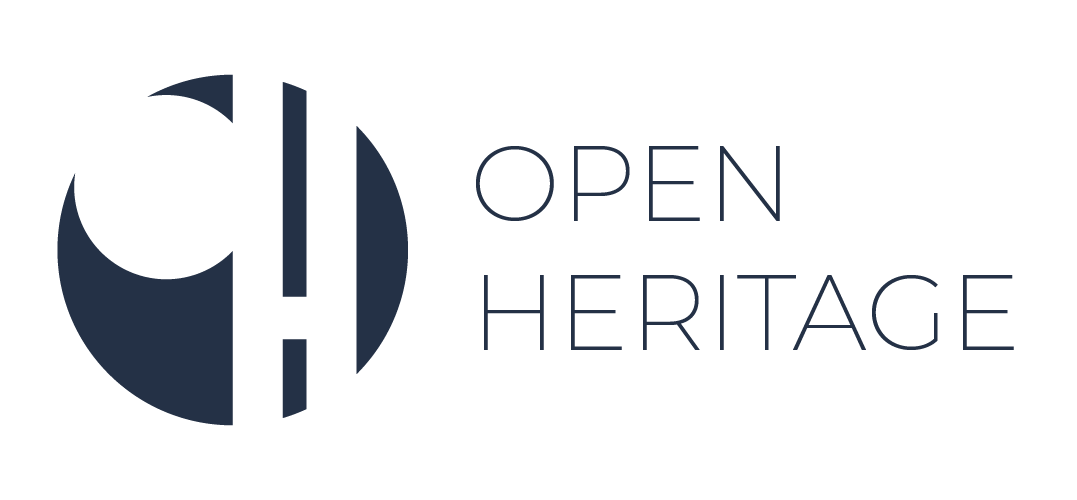The glossary entries are the result of a collaborative process among OpenHeritage consortium partners and have undergone an internal review. However, they only express the perspective of the authors listed under each term, not of all partners. You can find information on the glossary production process and the full glossary here.
Volodymyr Kulikov
Central European University, Budapest, Hungary – Vienna, Austria; KulikovV@ceu.edu
Dóra Mérai
Central European University, Budapest, Hungary – Vienna, Austria; MeraiD@ceu.edu
Short definition
Crowdsourcing or citizen science is the activity of asking the public to take on tasks via the internet, which contribute to research or educational interest related to cultural heritage collections or knowledge. Crowdsourcing projects aim at generating or/and processing content, such as transcribing manuscripts or oral interviews, classifying objects, annotating documents, geotagging, identifying people and objects on photos. However, crowdsourcing is more than just a framework for creating content. It allows the initiators to build a community of interested individuals who are ready to work towards a specific aim.
Key discussions around the term
Crowdsourcing is based on the concept of “wisdom of the crowd” according to which under the right conditions, crowds can be remarkably intelligent (Surowiecki 2004). Many popular online services, such as Wikipedia, Google Translate, and Trip Advisor, are based on this principle. Crowdsourcing realizes the ideal of a participatory culture and focuses on working towards “a shared, significant goal or research interest” (Ridge et al. 2014, 2) together with the online community.
Crowdsourcing allows cultural heritage organizations to obtain new information, add to the existing collections, create new knowledge, present and promote heritage collections and organizations (see Ferriter 2017). Creating online communities is another crucial benefit of this model. Crowdsourcing can foster better engagement with the public and enable heritage experts and the public to share the responsibility for heritage assets. Crowdsourcing projects can also contribute to reaching some socially relevant objectives such as gaining new software skills and online communication experience. They also provide an opportunity for socializing.
Crowdsourcing as a tool for online public engagement has some limitations and side effects. Although volunteers usually do not get any monetary compensation, crowdsourcing projects require resources to set up and run a website, and to communicate continuously with the online community. Research has demonstrated that it is crucial to invest in website design, create clear user manuals, and craft convincing texts explaining the social or academic significance of the project (McKinley 2016). Crowdsourcing is not about having the job done for free, but rather about being open to new ideas and willing to do things for and with the public.
Using unpaid volunteer work raises concerns about the ethical side of crowdsourcing. Is it acceptable to use the free work of people who could instead sell their labor for money or does it count as exploitation? Several studies have demonstrated, that the motivations of volunteers are usually combined with intrinsic and extrinsic elements, so they benefit from crowdsourcing in various non-monetary ways (Ridge et al. 2014).
Some heritage experts are skeptical about crowdsourcing due to the questionable quality of the results. However, there are several efficient controlling mechanisms, such as having different volunteers perform the same microtask. Another option is to engage experts at the final stage of the task so that they can check the quality of the results and request a rework if necessary. Practice shows that well-designed crowdsourcing tasks result in a high-quality outcome (Ridge et al. 2014).
Crowdsourcing is sometimes perceived as a job done by “an undefined generally large group of people in the form of an open call” (Howe and Robinson 2006). In practice, it is a little group of enthusiasts – so-called “supercontributors” – who do most of the work. The challenge is how to find such contributors who are interested in the topic and how to engage them. Moreover, if, for some reason, a “supercontributor” withdraws from the project, it significantly reduces the speed of the progress.
Engaging the public through the internet requires open access to the materials to make them available for the volunteers. Therefore, only those materials can be used whose online publication does not violate copyright regulations. The results of crowdsourcing projects should also be freely available online.
Democratizing heritage by increasing public participation is perceived by some heritage experts as de-professionalizing and amateurizing of the cultural heritage domain (Owens 2013; Fredheim 2018). Some heritage organizations also fear losing control over the process of working with their collections. Successful crowdsourcing projects are grounded on shared responsibility, trust, and collaboration between heritage organizations and the public.
Reference list
Ferriter, Meghan. 2016. “Inviting engagement, supporting success: how to manage a Transcription Center.” Collections 12 (2): 97-116.
Fredheim, L. Harald. 2018. “Endangerment-driven heritage volunteering: democratisation or ‘Changeless Change’.” International Journal of Heritage Studies 24, no. 6: 619-633.
Howe, Jeff, and Mark Robinson. 2006. “The rise of crowdsourcing.” Wired magazine 14 (6): 1-4.
McKinley, Donelle. 2016. Design principles for crowdsourcing cultural heritage [report]. Retrieved from http://nonprofitcrowd.org/crowdsourcing-design-principles
Owens, Trevor. 2013. “Digital cultural heritage and the crowd.” Curator: The Museum Journal 56, no. 1: 121-130.
Ridge, Mia, Shelley Bernstein, Lucinda Blaser, Tim Causer, Melissa Terras, Sharon Leon, Michael Lascarides, and Ben Vershbow. 2014. Crowdsourcing Our Cultural Heritage, Digital Research in the Arts and Humanities: Routledge.
Surowiecki, James. 2004. The Wisdom of Crowds: Why the Many Are Smarter Than the Few and How Collective Wisdom Shapes Business, Economies, Societies and Nations. New Doubleday – Abacus.
